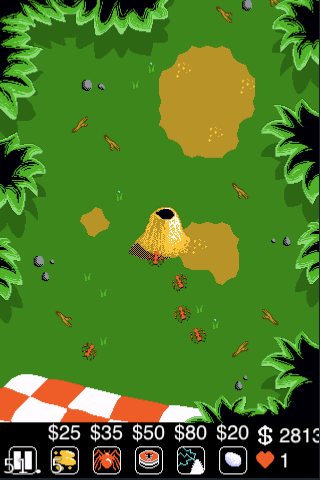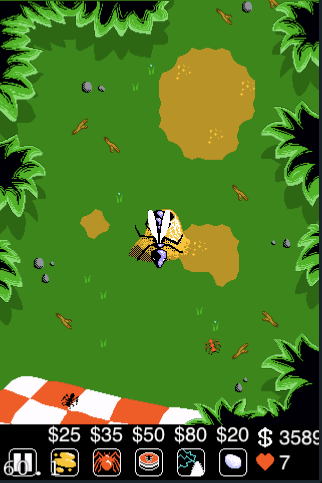I love stories. Stories can do so much; they can take you to a far away world when the stresses of the real one are too much. They can educate you on history, science, people, and more. They can make you cry, laugh, gasp. They can introduce you to new characters that can come to feel like friends to you.
My preferred medium for story telling is books. For a myriad of reasons, I find it difficult to find a story in any other medium that can engage me as much as a well written book can. There are a few reasons for this:
1. My favorite part of a story usually ends up being the characters. Nothing lets you get more into the mind of your character than being able to hear their thoughts directly.
2. I like long, engaging plots. My favorite books are usually greater than 700 pages long. It's a lot easier for a book to get written that is 700 pages long than to have a movie or tv series with the same plot produced. In the TV series, each new character, backstory, and locale adds to the budget, and the lengthier a book, the more of these that are likely to exist. A book can add new locales without having to get board approval for a budget raise.
3. Movies are often 'ADD' oriented - people want to sit down, have an epic experience, then walk out and be done. Oftentime, they don't carry anything with them after a movie. A book, on the other hand, is more difficult to read in a single sitting, and the characters could be with you for days, weeks, months, even years (depending on the speed that you read), making them feel that much more important to you.
4. In general, I am not a huge fan of typical Hollywood-isms. (Big Explosions, car chases, end of the world, clues hidden about that reveal over time how the movie will climax, etc.)
5. I'm not good at reading epic poetry.
Granted that there are plenty of things that you can do with television and movies that cannot be done with books. I would not even think of reading a book about Kung-Fu if there was a movie done about the book starring Jackie Chan. In fact, the visual medium can be an excellent way to tell a story in a different way then a book.
Let's take for example a similar idea and see how well it translates into books versus movies, and then I will talk about how it translates to games:
The Scene: A man walks into a room where another man was killed. Various clues are littered about the room.
In a book: This type of scene can work very well in a book. The author can describe each of the clues, and even describe the man's reaction to each one; perhaps he knows what some of them mean. This makes the reader feel smarter, but still puzzled; what do the other ones mean?
In tv: Tv's advantage is it does not have to call attention to every clue that is in the scene. It's on the screen; it is up to the viewer to locate and puzzle over the various clues. If there is a bloody handprint on the window sill, and the viewer sees it, they can draw a conclusion that the murderer escaped through the window. They are rewarded for their powers of observation.
Unfortunately, this form of visual storytelling is rarely used. Modern viewers don't have the patience to look at a still shot for very long; next time you watch TV, count how many times the camera stays in the same spot for longer than 4 seconds, without some form of shaking, zooming or panning going on. It won't happen very often. So while this type of story telling can indeed be used, what happens more is there will be a dramatic effect, probably a snapshot, drawing attention to each relevant clue. This is so that the viewer doesn't get lost if they don't notice the handprint on the windowsill, but it does mean that viewers are spoon fed more.
In games: Being a visual medium, games have the same advantages that TV has, but since the player is in control, they have a bit more freedom. Placing clues around the game that the player can discover by moving through the world does not cause impatience, because the players are able to spend as much time looking at and investigating said objects as desired.
As the above example shows, games have the chance to take an experience that is good in books and good on tv, but make it something more. Suddenly, instead of observing the clues being discovered, the player is discovering the clues themselves. (This has, in fact, been used in many games over the years, from Hugo's House of Horrors to Myst to Hidden Object games, etc.)
Games have the potential to do some really neat, and interesting, things with storytelling. The unfortunate thing is that, they are not done very often. To many game designers, story telling means tossing in some cut scenes between the action in the game, where we learn that a) the world is in jeopardy of being destroyed / taken over, b) we are humanity's last hope because of prophecy/some equipment we have/our past, and c) the enemy is evil and stands for nothing good, so killing him would not only be perfectly okay, but probably better for everyone involved. Also, killing him solves all of our problems.
There are, of course, other stories, but that's the general feeling a lot of games go through. (Think: Legend of Zelda, Tales of Symphonia, Legend of Mana, Half Life 2, etc. etc...)
So why is it that a lot of games, this medium that has the potential to tell some truly interesting stories, are telling stories that pale in comparison to most things that hollywood, tv, and literature are capable of coming up with? What makes a good story, and how can games make it better?
I hope to answer these questions over time, and will hopefully have time to continue writing this blog series as observations are made. I would like to draw one initial conclusion:
Most games are designed as games first, with the story tacked on afterward to drive the player, so the game and story do not necessarily work together. In order for a game to have a truly magnificent story told, the gameplay and story have to be designed to work in harmony.
Sunday, September 27, 2009
Thursday, September 17, 2009
iPhone Tip
If you are getting security errors (Error launching remote program: security policy error) when trying to run an iPhone app on your iPhone with the correct provisioning profile, go into the organiser window and uninstall all provisioning profiles that may be expired, as they apparently can cause trouble.
Discovered this from a comment in the following blog post: http://isagoksu.com/2009/development/iphone/how-to-get-rid-of-security-policy-error/
While I'm here, may as well toss up a couple current Ant Attack screenshots, the game we are currently working on for the iPhone. The goal is simple: kill ants, buy things to kill more ants.

The ants scattering

The queen ant that the player will uncover at the end of the level
Discovered this from a comment in the following blog post: http://isagoksu.com/2009/development/iphone/how-to-get-rid-of-security-policy-error/
While I'm here, may as well toss up a couple current Ant Attack screenshots, the game we are currently working on for the iPhone. The goal is simple: kill ants, buy things to kill more ants.

The ants scattering

The queen ant that the player will uncover at the end of the level
Subscribe to:
Posts (Atom)